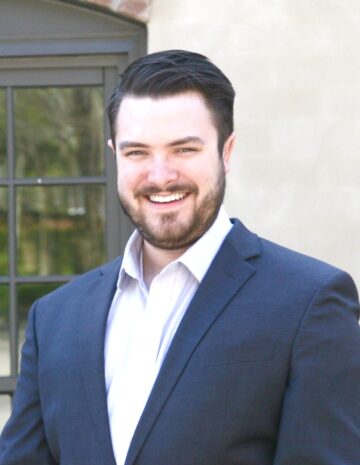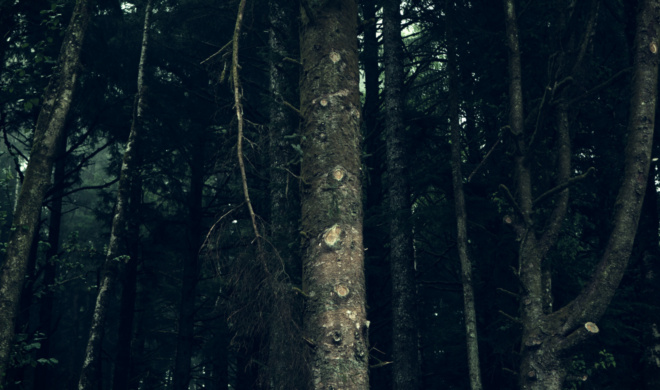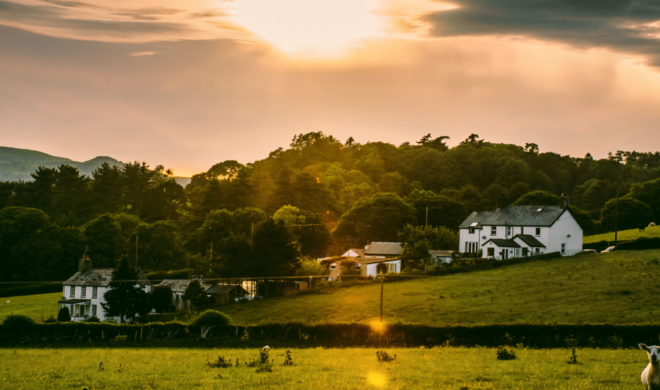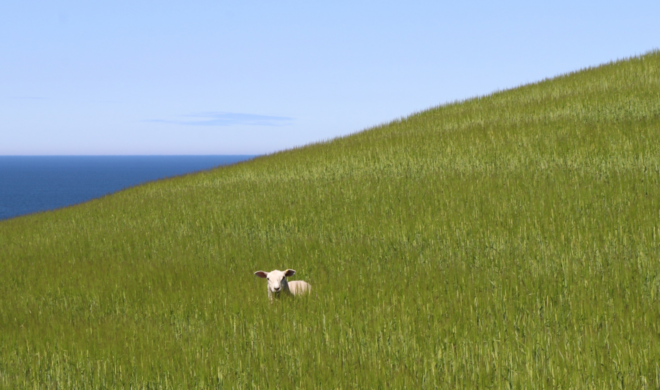Apocryphal legend has it that someone once asked Martin Luther what he would do if he knew Jesus Christ was returning the next day. It’s an excellent question for everyone to consider. How we view tomorrow determines how we live today.
Modern Western evangelicalism has too often espoused what some scholars call a two-chapter gospel. Chapter one: humans sinned and fell into the fall. Chapter two: Jesus died and rose to save us. But this is only part of the story of the scriptures. We are hyper-focused on the past and the present.
However, the Bible actually presents something more akin to a four-chapter gospel, where good creation and new creation bookend sin and redemption. The economy of Eden points to the economy of New Jerusalem. The trajectory of the Christian life moves from God making us in his image toward a day when his name will be inscribed on our foreheads. In other words, we were made to look like God, and he’s making us to look like him again.
The Spirit of God accomplishes this sanctifying work in us in real time and real space. He moves our hearts and our will, our desires and our dollars, away from the economy of Babylon and toward an economy of creativity and integrity.
The New City
Wendell Berry, an agrarian poet, essayist, and novelist, has a collection of novels centered in Port William, a fictional town based on his home in rural Kentucky. His characters overlap from book to book. They learn, suffer, work, grow, and belong together. They see their community as a holy membership. So, when in Hannah Coulter the narrator muses on the return of Christ, she adds a bit of color to John the Revelator’s words. She imagines “a new heaven and a new earth and a new Port William coming from heaven, adorned as a bride for her husband, and whoever has known her before will know her then.”
Have you ever considered what your city will look like when it’s made new? I grew up believing that the world-ending fire (to borrow another phrase from Berry) in 2 Peter 3 was one of destruction. But the more I read and the longer I live, the more I believe it’s one of refinement. To put it another way, God is making all things new, not all new things.
We must remember that we are moving from a garden to a city. God created us in a garden to work and keep it, and he created us for a city—one with gates, vineyards, jewels, cuisine, and homes. We will be a people, a membership, in a place that’s the very presence of God. And we will be exchanging with one another relationally, spiritually, and spatially. Simply put, the difference between a city and a garden is the complexity of the economy. We should expect our work and our investments to grow in scope, efficacy, and beauty.
Investing Today in Light of New Creation
This fundamentally changes the way we invest today. Unlike money itself and our desire to hoard it, our investments will not burn up in the end. Investment is an act of ownership, one of blessing a company’s product or service as desirable and necessary, one of validation and approval of the business’s process and philosophy. This means as investors we should ask: What kinds of businesses can survive the refining fire?
First, we are wise to consider which product offerings and operational processes will not be present in God’s presence. Though Babylon is the economy of imperfect options, some companies unfortunately go above and beyond in harming those they are supposed to serve. Forced labor and unsafe working conditions abound in supply chains, and profits depend on products that prey on the poor and cause addiction. If it’s not a company we would frequent in the next life, why would it be a company we are comfortable owning in this life? Eliminating egregious actors from our investment consideration is a small step we can take to prepare ourselves and our world for Christ’s return.
Second, we ought to examine what values and virtues will certainly reside in the new creation. Reflecting their Maker who is a healer, provider, and innovator, there are companies all across the world committed to solving under-researched medical ailments, paying employees more than enough to thrive, and establishing educational centers for underprivileged youth. If New Jerusalem is a city where, as C.S. Lewis once said, every sad thing will come untrue, we should want to own companies that want to make life here on earth a foretaste of how it will be in heaven.
Still, some may wonder, will any of our labors and investments truly matter in the end?
J.R.R. Tolkien, facing severe writer’s block and anxiety while writing The Lord of the Rings, penned a short story entitled “Leaf by Niggle.” Niggle is an artist overtaken by the vision of a resplendent tree, but he finds himself stuck depicting the details of a single leaf. He lives a faithful life, working hard as a painter, but also as a member of his community. Indeed, his artistic labor is often interrupted by neighbors desiring his help. How will he ever complete his painting? Eventually, death comes for Niggle. Tolkien describes him wandering around heaven on a bicycle. Suddenly, Niggle catches a vision that knocks him off in amazement. There before him, face to face, is his tree. It is fully finished. He can even identify something of an echo of that leaf on which he so long strained.
Christ has died, Christ has risen, and Christ will come again. He could come again tomorrow, so what we do today matters. It matters because our work—including our investments—can signal how we were made in God’s image, how Christ worked his redemption in us and uses us as agents of renewal, and point to how one day we shall be in the life of the world (and economy) to come.
With eyes fixed toward the new creation, Martin Luther could answer his friend’s question with ease. If Christ were returning tomorrow, he said, “I would still plant a tree today.”
This communication is provided for informational purposes only. Eventide Center for Faith and Investing is an educational initiative of Eventide Asset Management, LLC (“Eventide”), an investment adviser. Information contained herein has been obtained from third-party sources believed to be reliable.
An employee of One Ascent has an equity interest in Eventide. This individual does not have an active role with the company; however he does receive profit sharing distributions based on his equity ownership giving him an incentive to support sales of Eventide’s investment products and services.




